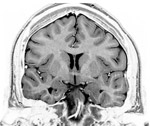You are headed out the door and you realize you do not have your car keys. After a few minutes of rifling through pockets, checking the seat cushions and scanning the coffee table, you find the familiar key ring and off you go. Easy enough, right?


You are headed out the door and you realize you do not have your car keys. After a few minutes of rifling through pockets, checking the seat cushions and scanning the coffee table, you find the familiar key ring and off you go. Easy enough, right?

Different ingredients in marijuana appear to affect regions of the brain differently during brain processing functions involving responses to certain visual stimuli and tasks, according to a report in the January issue of Archives of General Psychiatry, one of the JAMA/Archives journals. Sagnik Bhattacharyya, M.B.B.S., M.D., Ph.D, at the Institute of Psychiatry, King’s College in […]

Imagine tapping into the mind of a coma patient, or watching one’s own dream on YouTube. With a cutting-edge blend of brain imaging and computer simulation, scientists at the University of California, Berkeley, are bringing these futuristic scenarios within reach. Using functional Magnetic Resonance Imaging (fMRI) and computational models, UC Berkeley researchers have succeeded in […]

Our memories work better when our brains are prepared to absorb new information, according to a new study by MIT researchers. A team led by Professor John Gabrieli has shown that activity in a specific part of the brain, known as the parahippocampal cortex (PHC), predicts how well people will remember a visual scene.

Children with attention deficit/hyperactivity disorder (ADHD) are at increased risk of being hit by a vehicle when crossing a street according to new research from the University of Alabama at Birmingham. The findings, published July 25, 2011, in Pediatrics, indicate that children with ADHD do not process information as well as non-ADHD children and tend to […]

Ever get the heebie-jeebies at a wax museum? Feel uneasy with an anthropomorphic robot? What about playing a video game or watching an animated movie, where the human characters are pretty realistic but just not quite right and maybe a bit creepy? If yes, then you’ve probably been a visitor to what’s called the “uncanny […]

Certain brain injuries can cause people to lose the ability to visually recognize objects — for example, confusing a harmonica for a cash register. Neuroscientists from Carnegie Mellon University and Princeton University examined the brain of a person with object agnosia, a deficit in the ability to recognize objects that does not include damage to […]

Visual and tactile objects in our surroundings are translated into a perception by complex interactions of neurons in the cortex. The principles underlying spatial and temporal organization of neuronal activity during decision-making and object perception are not all understood yet. Jason Kerr from Max Planck Institute for Biological Cybernetics in Tübingen, in collaboration with Winfried […]
Recent Comments